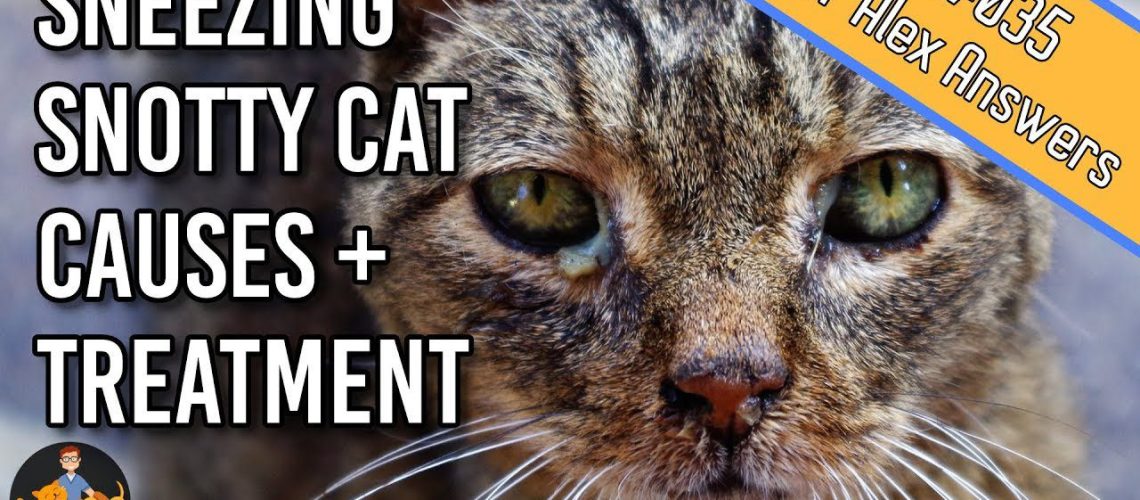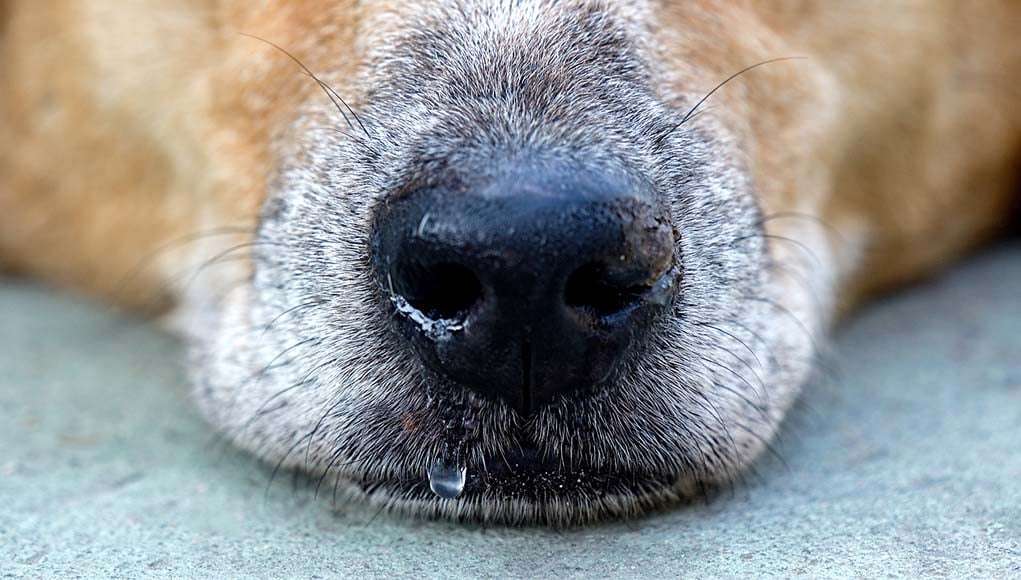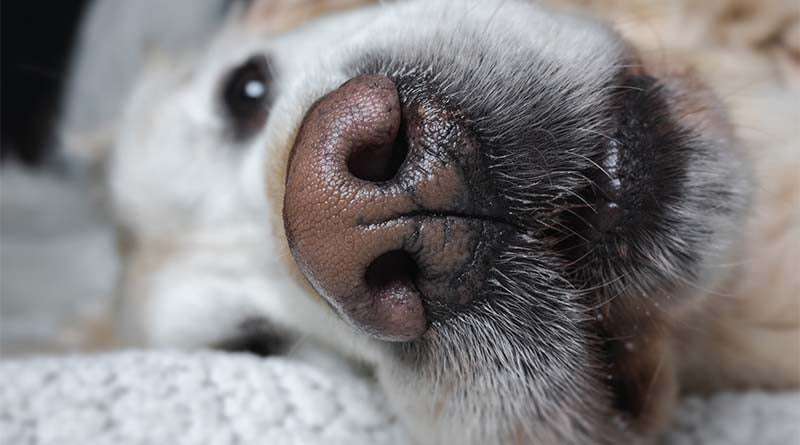Are you a cat lover who can't resist the adorable sight of your furry friend? If so, then you understand the joy and companionship they bring to our lives. But what happens when your beloved feline starts experiencing sniffles and sneezes? Don't worry, because in this article, we will explore the world of runny noses in cats and discover why understanding this topic is essential for their well-being. Whether you're a seasoned cat owner or just starting out, knowing how to identify and treat these symptoms can make all the difference in keeping your whiskered companion healthy and happy. So let's dive into the fascinating world of sniffles and sneezes in cats and become experts in caring for our feline friends!
Key Takeaways:
- A runny nose in cats can be caused by a variety of factors, including allergies, infections, or foreign objects.
- Common symptoms of a runny nose in cats include sneezing, nasal discharge, and congestion.
- If your cat has a persistent runny nose, it is important to consult with a veterinarian to determine the underlying cause and appropriate treatment.
- Treatment for a runny nose in cats may include medication to alleviate symptoms, antibiotics for bacterial infections, or removal of foreign objects.
- Preventing exposure to potential allergens and maintaining good hygiene can help reduce the risk of your cat developing a runny nose.
Common Symptoms of Sniffles and Sneezes: Runny Nose in Cats
A runny nose in cats is often accompanied by other symptoms that indicate an upper respiratory infection. Common signs to look out for include:
- Sneezing: If your cat is sneezing frequently, it may be a sign of a runny nose.
- Nasal discharge: A runny nose in cats usually involves clear or slightly colored discharge from the nostrils.
- Congestion: Your cat may sound congested or have difficulty breathing due to the excess mucus in their nasal passages.
- Watery eyes: Along with a runny nose, your cat's eyes may appear watery or have a discharge as well.
- Lethargy: Cats with a runny nose may also exhibit signs of lethargy and reduced appetite.
If you notice these symptoms in your cat, it's important to monitor them closely and take appropriate measures to provide relief and prevent further complications.
How to Tell if Your Cat Has a Runny Nose
Identifying whether your cat has a runny nose can be relatively simple. You can observe the following signs:
- Check for any discharge from your cat's nostrils. If you see clear or slightly colored fluid coming out, it indicates a runny nose.
- Listen carefully to your cat's breathing. If you hear congestion or wheezing sounds while they breathe, it suggests they have excess mucus in their nasal passages.
- If your cat is frequently sneezing and rubbing their face against surfaces, it can be another indication of a runny nose.
- Observe your cat's behavior for any signs of discomfort or reduced appetite, as these can also be associated with a runny nose.
If you suspect that your cat has a runny nose based on these observations, it is advisable to consult a veterinarian for a proper diagnosis and appropriate treatment.
Causes of Sniffles and Sneezes: Runny Nose in Cats
A runny nose in cats is commonly caused by viral or bacterial infections. The most common culprits include:
- Feline herpesvirus: This highly contagious virus affects the upper respiratory system of cats and can lead to symptoms such as sneezing, nasal discharge, and conjunctivitis.
- Feline calicivirus: Another common respiratory virus that causes similar symptoms to feline herpesvirus, including sneezing, nasal discharge, and ulcers in the mouth.
- Bacterial infections: Secondary bacterial infections can occur when the immune system is weakened by a viral infection. These infections may worsen the symptoms and prolong the duration of a cat's runny nose.
- Allergies: Cats can also develop allergies to certain substances like pollen or dust mites, which can cause sneezing and a runny nose.
It's important to note that while some causes of a runny nose in cats are relatively harmless and resolve on their own with time, others may require veterinary intervention for proper treatment.
Can Cats with a Runny Nose Transmit the Illness to Humans?
Understanding the Risk of Transmission
When it comes to cats with a runny nose, you may be wondering if they can pass their illness on to humans. The good news is that most respiratory infections in cats are caused by specific feline viruses and bacteria that do not typically infect humans. However, there are some exceptions to this rule. Certain viruses, such as the feline herpesvirus and calicivirus, can potentially be transmitted from cats to humans, although this is rare.
Precautions to Take
To minimize any potential risk of transmission, it's important to practice good hygiene when caring for a cat with a runny nose. Wash your hands thoroughly with soap and water after handling your cat or cleaning their nasal discharge. Avoid close contact with your face or mucous membranes while handling an infected cat. If you have a weakened immune system or are pregnant, it's advisable to let someone else handle the care of the sick cat until they recover.
Tips:
- Wash your hands thoroughly after handling a cat with a runny nose.
- Avoid close contact with your face while caring for an infected cat.
- Seek medical advice if you have concerns about potential transmission.
Home Remedies to Help Relieve a Cat's Runny Nose
Gentle Steam Inhalation
One effective home remedy for relieving a cat's runny nose is gentle steam inhalation. Create a steamy environment by running hot water in the bathroom and allowing the cat to sit in the room for about 10 minutes. The warm moisture can help loosen mucus and ease congestion.
Nasal Saline Drops
Another option is using nasal saline drops specifically formulated for cats. These drops can help moisturize the nasal passages and provide relief from a runny nose. Administer the drops as directed by your veterinarian, usually by gently tilting the cat's head back and placing a few drops in each nostril.
Tips:
- Create a steamy environment in the bathroom to help relieve congestion.
- Use nasal saline drops formulated for cats to moisturize the nasal passages.
When to Take Your Cat to the Veterinarian for a Runny Nose
Signs of Concern
While a runny nose in cats is often caused by minor respiratory infections that resolve on their own, there are certain signs that indicate it's time to seek veterinary care. If your cat's runny nose is accompanied by other concerning symptoms such as difficulty breathing, loss of appetite, lethargy, or coughing, it's important to consult with a veterinarian promptly.
Underlying Health Conditions
Additionally, if your cat has pre-existing health conditions or a weakened immune system, it's crucial to have them evaluated by a veterinarian even if their runny nose appears mild. Cats with chronic illnesses or compromised immune systems may be more susceptible to severe respiratory infections that require medical intervention.
Tips:
- Seek veterinary care if your cat's runny nose is accompanied by concerning symptoms.
- Cats with pre-existing health conditions should be evaluated by a veterinarian.
Preventive Measures to Avoid Sniffles and Sneezes: Runny Nose in Cats
Vaccination
One of the most effective preventive measures against respiratory infections in cats is vaccination. Regularly vaccinating your cat against common feline viruses like herpesvirus and calicivirus can significantly reduce their risk of developing a runny nose and other related symptoms. Consult with your veterinarian to ensure your cat's vaccinations are up to date.
Environmental Hygiene
Maintaining a clean and hygienic environment can also help prevent the spread of respiratory infections among cats. Regularly disinfecting litter boxes, food bowls, and bedding can minimize the presence of infectious agents. Additionally, keeping your cat indoors and limiting their exposure to other potentially infected cats can reduce the risk of contracting respiratory illnesses.
Tips:
- Ensure your cat's vaccinations are up to date.
- Maintain a clean environment by regularly disinfecting litter boxes and bedding.
- Limit your cat's exposure to potentially infected cats.
Duration of a Cat's Runny Nose and When It Typically Goes Away
Varied Duration
The duration of a cat's runny nose can vary depending on the underlying cause. In most cases, mild respiratory infections in cats resolve within 1-2 weeks without any specific treatment. However, if the runny nose persists or worsens over time, it may indicate a more serious infection or an underlying health issue that requires veterinary attention.
Veterinary Evaluation
If your cat's runny nose lasts longer than two weeks or is accompanied by other concerning symptoms, it's important to consult with a veterinarian for a proper diagnosis and appropriate treatment. The veterinarian will conduct a thorough examination, which may include diagnostic tests such as blood work or nasal swabs, to determine the underlying cause and provide targeted treatment.
Tips:
- Mild respiratory infections in cats typically resolve within 1-2 weeks.
- Consult with a veterinarian if the runny nose persists or worsens over time.
Possible Infection Risk for Other Cats in the Household If One Cat Has a Runny Nose
Understanding Contagiousness
When one cat in a household has a runny nose, there is a potential risk of infecting other cats. Respiratory infections in cats can be highly contagious, especially if caused by viruses like feline herpesvirus or calicivirus. These viruses can spread through direct contact with nasal discharge or through shared items such as food bowls and litter boxes.
Isolation and Hygiene Measures
To minimize the risk of spreading the infection to other cats, it's important to isolate the sick cat from healthy ones until they recover. Provide separate food bowls, litter boxes, and bedding for the infected cat. Practice good hygiene by washing your hands thoroughly after handling the sick cat and disinfecting any shared items regularly.
Tips:
- Isolate the sick cat from healthy ones until they recover.
- Provide separate food bowls, litter boxes, and bedding for the infected cat.
- Practice good hygiene by washing hands thoroughly and disinfecting shared items regularly.
In conclusion, cats can experience sniffles and sneezes leading to a runny nose, just like humans. It is important to provide them with proper care and attention when they show these symptoms to ensure their well-being.
What helps a cat with a runny nose and sneezing?
In order to treat sneezing and nasal discharge in cats, various options may be necessary, including antibiotics, nasal decongestants, antihistamines, appetite stimulants, and either subcutaneous or intravenous fluids. Additionally, diseased teeth may require extraction.
Why does my cat have a runny nose and sneeze?
If your newly adopted cat starts sneezing, or develops a runny nose or watery eyes within a week of bringing them home, it is likely that they have contracted an Upper Respiratory Infection (URI). Since this virus can easily spread to other cats, it is important to keep them separated if you have any resident cats.
Should I take my cat to the vet for sneezing and runny nose?
It's not a significant issue unless the sneezing occurs repeatedly, starts suddenly, and is accompanied by other symptoms such as nasal or eye discharge, whether it be clear or colored.
How do you treat a cat with sniffles?
Home remedies for cat colds include cleaning the cat's nose with a warm, damp cloth or cotton ball multiple times a day to keep it clear and comfortable. Placing a humidifier in the room where the cat is sick or near its sleeping area can help increase humidity and relieve dry mouth and nasal tissues.
How can I treat my cats cold without going to the vet?
What can I do at home to help my cat with a cold? If your cat is still able to eat, drink, urinate, and defecate normally, you can aid in her recovery by using steam therapy from a hot shower, using a humidifier if the air is dry, and creating a stress-free environment at home.
Will a cats upper respiratory infection go away?
URI, a condition similar to the common cold in humans, is frequently seen in cats that have had contact with many other cats, such as those in animal shelters. Though rarely deadly, URI typically resolves within one to three weeks and is treated with supportive care.

















